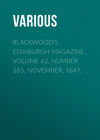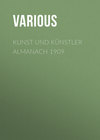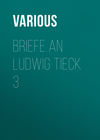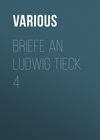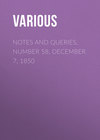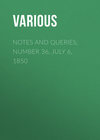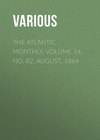Buch lesen: «Blackwood's Edinburgh Magazine, Volume 62, Number 385. November, 1847.», Seite 13
CHAPTER V
As we were entering the house, Felworth informed me that Mrs and Miss Vernon were to join their family party at dinner that day; and that we would be obliged to walk home with them in the evening. The time passed most agreeably, and the walk was delightful! I shall not attempt to describe the younger lady, for no words of mine can do her justice. A great variety of the fairest and loveliest of the sex have been depicted by writers of fiction from Sir Walter Scott downwards: and few young gentlemen exist who have not at some time been "over head and ears" in love. Now, it is a matter of fact, that the latter look upon their Lucys, or Amys, or Dianas (for the time being) as considerably excelling any of those with whose verbal portraiture they are familiar. Need I say that I formed any exception? On that moonlight night, as I parted from her, I felt satisfied that there was no more lovely person in the world than Alice Vernon.
The first words spoken on our return were by Felworth. "Perhaps you are aware that Miss Vernon has a large fortune?"
Rather surprised by the abruptness of the remark, I answered that I was so; but that I would admire her just as much if she had not a farthing in the world.
"I have no doubt you would," was my companion's reply; "but that is not the matter in consideration at present. I merely wish to tell you an anecdote of Lieutenant Flixton. He is very easily roused, but soon calms again. On this hint I spoke; and in the evening of the day of the river business, as he and I were sitting together, I delicately hinted to him the amusement he had afforded to Miss Vernon in the morning. I wish you had seen him: his face grew red as scarlet, and he exclaimed, "Put a side-saddle on 'Units,' and put 'tens of thousands' on it, and they will be a well-matched pair!" I kept him in a state of fever the whole time he remained, by threatening to tell the lady the compliment he paid her. You know the Vernons are connexions of ours, and that is one reason why they are residing at Violet-Bank now. But I am sorry they are soon going away: for when Richard Vernon returns from the West Indies, (and he is expected in two months,) his mother and sister are going to live with him in London."
These remarks of Felworth served to remove some unpleasant matters from my mind. I saw that I would experience no rivalry from him; and I thought myself a match for Flixton if I had but a fair field.
I must confess that the next morning I did entertain serious apprehensions of the proposed tandem expedition. And, had I been able to devise any feasible plan of carrying Mrs Russell's advice into execution, I would eagerly have adopted it. My difficulties, however, seemed to be removed, as I perceived that the gig was brought to the door with "Tens" alone in it but vain was my expectation!
"You will please take your seat," said Felworth, "and make yourself comfortable, and I will follow your example."
We did so. "Units" was now led forward to his place in front by one man, who held a cloth over his eyes, while another arranged the reins, and gave them into Felworth's hand. The traces were still unfastened.
"Now we go, Tens, Units! get along!"
At the signal given, the horse made a tremendous plunge forward, while Felworth, adroitly yielding his hand for the moment, drew him in firmly but gently, while the two men, running alongside, attached the traces.
"Strange way 'Units' has of leaving home!" quietly remarked Felworth; "but he is a peaceable animal after all, for you remark he never kicks back. And can any thing be more steady than 'Tens?' You would not depreciate her now."
"Certainly not; a female Socrates is a good companion to that male Xantippe."
Felworth then went on to say, that the horse was perfectly safe as a leader; and that, if he was not sure that he was so, he would not consider himself justified in risking the life of any one. He added that there were only two things of which he had the least dread; – the one was, the sudden opening of an umbrella; but there was no risk of that in weather such as we were then enjoying; the other was, a shot fired near the horse; but then there was little danger in that way either, for there was not a gun in the neighbourhood, nor any thing at which to fire. When I expressed an opinion that he and I afforded pretty fair marks ourselves, and that I had heard of such being selected, he burst out laughing, and asked me if I had made my will before I left England; and did I believe the half of the stories I heard there about Ireland? He then remarked that a whip would last for several generations if one always drove horses like "Units" and "Tens." Before we arrived at our destination, he said he had directed his servant to be in readiness to take home the gig from Violet-Bank, for that we could return by another road, and call there.
"I like your arrangement much," said I, "as I wish to pay my respects to Mrs Vernon before I leave."
"It is all very proper," said Felworth, "but there was no occasion to lay such emphasis on the 'Mrs.'"
After strolling about the village for an hour, Felworth despatched his business, and we turned homewards. He did not appear so much inclined for conversation as he had been in the morning; and we both soon lapsed into comparative silence. The very act of driving has at any time a tendency to produce a ruminating mood; and my thoughts naturally turned on Alice Vernon. It was true, I had seen her only twice, and on the first occasion only for a few minutes; yet, even now, I could not bear the thought of her becoming the wife of another. I knew I would probably see her in London when her brother returned; but how many things might happen in the mean time? I felt she could look on me only as a stranger. I wished much that I could have remained longer at Craigduff; but for several reasons that was out of the question. It was true I had been much pressed to prolong my stay, but I had said that my visit was a stolen one. And now would I not look excessively foolish, when it appeared that "imperative circumstances" were turned into moonshine by a moonlight walk? I was aroused from my reveries by an exclamation from Felworth, "There is Alice Vernon, I am positive! You see her walking on the road before us under the row of beech-trees. We will overtake her by the time she comes to the end of them, by the quarry on the right." He proved himself accurate; for we were only a few yards behind her, as she came into the bright sunshine. At this moment (as was natural for any lady to do) she opened out her parasol in the direct view of Units. The consequence was that he made a sudden stop, so that the mare came against him; this was followed by a quick bound to one side, so as almost to pull "Tens" off her balance. Felworth, however, had the horses well in hand; and even yet all matters might have gone right. But just at that moment an explosion took place at the quarry beside us. I saw the infuriate beast make a jump at the fence on the left. I fancy I heard a crash – but I have no recollection of any thing more.
CHAPTER VI
"He lives! – thank God, he lives! – and it was all my fault!" were the first words I heard in returning consciousness. I felt very faint and weak, but the tones sounded sweetly in my ears. I then heard some directions to keep me "perfectly quiet."
But I need not detail the progress of my recovery. I was in Violet-Bank, near to which the accident had occurred. My brother soon after came to see me; and even my worthy aunt, in her anxiety, ventured into "that horrid country." Pleasant, indeed, were the hours I passed in the period of my convalescence.
As soon as was permitted by the doctor, I had a visit from Felworth.
"Thank Providence," said he, "all is right with you now, but it was a very doubtful matter for some hours. It was a bad business altogether. Units was killed, and you nearly so."
"But tell me exactly how you got off yourself: I perceive your forehead cut, and your arm in a sling."
"You see the whole of the injuries I received; but the mare is much cut and bruised; both shafts of the gig were broken. I have preserved, as a sad memorial of the day, the stone against which your head came when you were pitched out. Fortunately, for me, I fell in a soft place; and I was on my legs before the quarry-men gathered about you, and carried you into the house. What presence of mind Alice had! She sent for the doctor without a moment's delay; but women always act best in such circumstances."
"But Units, what of him?"
"Why, one trace broke in his attempt to leap into the field; and, fortunately for Tens, the other soon gave way; and then he galloped home."
"I thought you said he was killed."
"And so he was, but not by fair play. My father, unfortunately, met the man who was leading home the mare; and when he heard what had occurred, he brought down his own pistols, and had the horse led out, and shot on the spot. It was not out of vengeance that he did so, for he was not aware at the time of the dangerous state you were in; but he said that the horse would be the cause of death to some one yet. It was from a kind motive he did so, but it was a sad blow to me. I will never see the like of Units again."
It was arranged that Alice and I were to be married in the following September.
"You were a sad truant," said my aunt, "to go from Dublin after the cautions I gave you; but I give my full pardon under the circumstances."
I had a silent but powerful, advocate near me.
Shortly after my recovery, I went to London, for the purpose of making necessary arrangements for my marriage. When there, I called upon Thomson, and narrated to him the entire events.
"You are a very lucky fellow!" he said. "I look upon this horse 'Units' as having been your guardian angel. I told you you were deficient in 'Constructiveness,' and your story proves it. Had it not been that you got your head broken, or some other fortuitous event occurred, you would have remained a bachelor to the end of your days."
RESEARCH AND ADVENTURE IN AUSTRALIA. 15
The confident mariner, spreading his canvass to the fickle gale, and launching forth upon unknown seas in search of uncertain shores, to combat the kraken and fish the pearl, scarcely exhibits more daring, or braves greater perils, than the hardy landsman, who, on horse's back or dromedary's hump, or his own mocassined feet, plunges into tangled jungle and pathless prairie, adventuring himself, a solitary pioneer, thousands of miles from the abodes of civilisation. If shoal and squall and treacherous reef, pirates and storms, and tropical calms scarce less terrible, when parched lips blacken for thirst in the midst of boundless waters, await the seaman, dangers equally imminent and inevitable, and more incessant beset the path of the wanderer in the desert. The sailor has his days and weeks of safety and repose and rude luxury, whilst the stately ship scuds merrily before favouring breezes over a summer sea, and the light routine of duty is but sufficient to give zest to the junk ration, the grog kid, and the tobacco pipe. The storm over, he swings easily in his hammock, recruiting strength for fresh exertion; and even when the winds howl their worst, give him a tight ship and sea-room, and he holds himself safe and laughs at the tempest. The explorer of trackless plain and aboriginal forest is in a very different predicament. He is never safe; his toils and tribulations are unceasing; danger may not exist, but he must ever guard against it, for he knows not where it may lurk. With him, security is temerity and eventual destruction. The ambushed savage, the crouching beast of prey, the silent and deadly reptile, the verdant swamp, flower-strewn and fathomless, wooing to destruction, the rushing torrent and resistless hurricane, are but a few of the dangers through which he threads his way. And when, at close of day, weary and hungry, foot-sore or saddle-galled, he halts for refreshment and repose, it seems but the beginning of his labours. Wood must be cut and collected, the fire lit, the meal prepared, often its very materials must be sought in pool and thicket, before the wanderer can be at rest, and the cravings of appetite appeased. The hardly-won repast concluded, the ground offers a comfortless couch to his stiffened and jaded limbs, where to snatch such sleep as the necessity of strict guard, and the ominous and mysterious noises of a night in the desert, allow to descend upon his eyelids.
With a thorough knowledge and appreciation of the many difficulties, dangers, and discomforts, inseparable from such an expedition, Dr Ludwig Leichhardt, a German gentleman, remarkable for enterprising spirit and scientific zeal, left Moreton Bay, upon the east coast of Australia, in September 1844, to proceed overland in a north-westerly direction to Port Essington, on the north coast, a distance of more than three thousand miles. The Doctor was no novice in such wanderings; he had already devoted two years to exploring the district north of Moreton Bay; undaunted by hardship, his thirst for knowledge unappeased, he had scarcely returned when he was ready to start again. Many dissuaded him, pointing out the vast field of research afforded within the limits of New South Wales, urging innumerable dangers – some imaginary, but more real – taxing him with overstrained enthusiasm, and inordinate lust of fame; even blaming him as a madman and a suicide. He was neither to be deterred nor cajoled from his expedition, but made his preparations, limiting as much as possible the amount of provisions and stores, in consideration of the difficulties of the route and encumbrance of baggage. He was also compelled, in conformity with the plan he had formed, and with the smallness of his means, to restrict the number of his companions, and reject the offers of many adventurous young men eager to accompany him. His party, at first composed of six persons, had swelled to ten, when, upon the 30th September, it left Jimba, the advanced post of the white man. The stores consisted of sixteen head of cattle, twelve hundred pounds of flour, two hundred pounds of sugar, eighty pounds of tea, and twenty of gelatine, eight bags of shot, and thirty pounds of powder. Each man had two pairs of strong trousers, three shirts, and two pairs of shoes, – certainly no very sumptuous equipment for a journey expected to last seven months, but which occupied fifteen. Fortunately, as they advanced, game and wild animals, at first rare, became more plentiful; and although the flour was expended at the end of the eighth month, they managed, with the aid of kangaroos, emus, waterfowl, and other beasts and birds, to protract their beef till their arrival at Port Essington. The party comprised (besides Dr Leichhardt) Messrs Calvert, Roper, Hodgson and Gilbert, John Murphy, a lad of sixteen, a convict of the name of William Phillips, Caleb, an American negro, and Messieurs Harry Brown and Charley, Australian aborigines, mutinous but useful, of whose character and propensities we learn more than of those of any other member of the party. The Doctor is, indeed, remarkably silent with respect to his fellow-labourers in the vineyard of Tasmanian discovery. Eight men of the adventurous disposition implied by their engaging in such an expedition, could hardly be thrown together for a year or more without displaying flashes of character, and greater or less eccentricity, the result of their exceptional position, of the many shifts and devices they had to resort to. Of characteristic traits, however, we obtain few hints from Dr Leichhardt, the most amiable, but the most matter-of-fact of travellers. His sympathies and attention are engrossed by the stocks and stones, the beasts, birds, trees and flowers around him. In them he finds tongues and books, and with and of them he loves to discourse. Although evidently a good comrade and considerate chief, his enthusiasm as a naturalist and man of science preclude much heed of his companions' peculiarities – if such they had. Enough that they are at hand, ready to aid him in catering for a meal, in chasing stray bullocks, replacing fallen baggage, and in the many other toils and labours in which he manfully bears his share. Nothing less than the departure of one, and the death of another, can elicit a passing hint of their character and qualities. Mr Hodgson shot a kangaroo; Mr Roper brought in eight cockatoos; Mr Phillips found a flesh-coloured drupaceous fruit; Mr Calvert shot a native companion – not one of the aborigines, but a bird so called; and thus the book goes on, every thing put down with the dry brevity of a seaman's log. Hence Dr Leichhardt's volume, though highly valuable and interesting to naturalists and emigrants, will scarcely be appreciated by the general reader. Learned and well written, the amusing element, which readers of the present day are apt to make a condition for their favour, is but scantily scattered through its pages. But it is a work of unquestionable merit and utility, and its author's name will justly stand high upon the honourable list of able and enterprising men, whose courage, perseverance, and literary abilities, have contributed so largely to our knowledge of the geography and productions of our distant southern colonies.
The first start of the expedition could hardly be called a good one; at least, it was not such as to encourage the faint-hearted, or falsify anticipations of extreme hardships and difficulties. A light spring-cart, which the doctor had fondly hoped to take with him through the wilderness, was broken the very first day. He was fortunate enough to exchange it for three bullocks, and proceeded to break in five of those animals for the pack-saddle, finding he could not depend upon his horses for carrying baggage. But the bullocks gave a deal of trouble, and were most unsatisfactory beasts of burthen. The weight they could carry without injury and exhaustion, was very small in comparison with their known strength, – not more than a hundred and fifty pounds, Dr Leichhardt found, for a constancy – without the advantage of roads. Mules would have been the proper carriers; and troublesome, kicking, contrary demons as they often are, under a hot sun and with the aggravation of flies, they could hardly have been more refractory than their bovine substitutes. Persons whose whole experience of bullocks, as beasts of draught and burthen, consists in having seen a pair of them tugging, with painful docility and resignation, at a heavy continental cart – a ponderous yoke across their necks, or their heads attached with multitudinous thongs to the extremity of a massive pole – can form but a faint idea of the tribulations of the Doctor and his friends, who had to lead the beasts, as best they might, with iron nose-rings, and who, moreover, being wholly unused to cattle of that description, had at first a not unnatural dislike of the horns. Then the pack-saddles did not fit, and the immediate result was sore backs; the cargo would get loose and fall off, to the fracture and destruction of straps; or the hornets, whose nests, suspended from the branches, were disturbed by the passage of the caravan, would drive the unlucky oxen nearly mad, by a stinging assault upon their hind quarters. Finally, both horses and bullocks had a singular propensity to stray back during the night to the previous halting place, whence they had to be fetched in the morning, causing great delay, and often postponing the start till mid-day. Here is a significant little entry in the log, comprising the entire proceedings of one day, which gives an idea of the difficulty of progress. "Oct. 2 – Bullocks astray, but found at last by Charley, and a start attempted at one o'clock: the greater part of the bullocks with sore backs. The native tobacco in blossom. One of the bullocks broke his pack-saddle, and compelled us to halt." Only one small plug of tobacco to all that peck of troubles! The nicotian flower the sole object in the scene of disaster, on which the eye can rest with a sensation of relief. Stray cattle, sore backs, broken saddles! The combination of calamities can only be appreciated by those who have encountered it, in the desert, and when anxious to prosecute their march. For some time, these pleasant incidents were of daily occurrence; added to which, the bullocks, in forcing their way through tangled thickets, frequently tore the sacks, and wasted large quantities of flour. And towards the latter part of the journey, when Dr Leichhardt, owing to the death of three horses, unfortunately drowned in a creek, had been forced to abandon, with tears in his eyes, a large portion of his valuable botanical collection, he had the intense mortification of seeing a reckless ox, foot-sore and heated by a long day's march, plunge deliberately into a deep pond, where the remainder of the dried plants, seeds, and the like, carefully packed upon the animal's back, underwent a thorough and disastrous soaking. As some amends for the trouble they gave, the bullocks proved useful in an unexpected capacity, namely, as guards. They conceived an antipathy to the natives, whom they charged in warlike style, whenever they had the chance. The aborigines held them in great respect, took them for large dogs (bull-dogs of course), and had a wholesome fear of their bite. These notions the travellers did not deem it advisable to dispel.
Opossums and flying squirrels, kangaroos, (some standing nine feet high,) and kangaroo rats, emus, ducks, and bronze-winged pigeons, were the principal beasts and birds encountered during the journey. Crocodiles were met with, and a few buffaloes. Fish of many kinds, now and then turtles, were seen and caught in the pools, rivers, and lagoons. Sand-flies, mosquitoes, and hornets, were very annoying, but the cool night-breeze usually swept them away. The melodious note of the glucking-bird, so named from the sound resembling "gluck, gluck," the noisy call of the "laughing jackass," the hoot of the barking owl, the howlings of native dogs, and the screech of the opossum, were the principal sounds that broke the stillness of the bush. Kangaroos were a great article of provender; the travellers chased them with dogs, so long as the dogs lasted, but these perished, little by little, until at last only one remained, – Spring by name, – a useful and valiant brute, covered with honourable scars. He was of the breed known as the kangaroo-dog, was exceedingly stanch and valuable, and the means of obtaining a vast deal of game. Of course, he was an immense favourite, and his masters had reckoned on his accompanying them to the end of their journey. They carried a calabash of water for his private use, as they were frequently very long without meeting with any, and this precaution more than once saved Spring's life. At last, during the latter part of a toilsome day's march, poor Spring lagged in rear and was forgotten. The next day two of the party returned to seek him, and found him almost dead, "stretched out in the deep cattle track, which he seemed not to have quitted even to find a shady place. They brought him to the camp; and I put his whole body, with the exception of his head, under water, and bled him; he lived six hours longer, when he began to bark, as if raving." And Spring gave up the ghost, to the great comfort and relief of the emus and kangaroos, and to the deep distress of the worthy Doctor and his biped companions.
The party had been out but one month, when the scarcity of game, far less abundant than had been expected, and the rapid shrinking of the flour-sacks, rendered it necessary to diminish its numbers, lest famine should be added to the many dangers of the journey. Mr Hodgson and Caleb the negro accordingly returned to Moreton bay, the remaining eight persons continuing their route. Two of these eight, as we have already mentioned, were Australian aborigines, indebted to Christian god-fathers for the baptismal names of Charley and Harry. Early in the expedition, these two gentlemen became exceedingly troublesome; not more so, however, than might reasonably be expected from the very sullen and brutish expression of their uncomely physiognomies. Dr Leichhardt favours us with a portrait of the pair, and notwithstanding the embellishments of clean frocks, flowing neck-kerchiefs, and a comb, we have seldom set eyes upon more unprepossessing countenances. Any more hirsute we certainly never beheld, and their whole aspect gives the idea of men who, in the natural state, would deem a tender infant the most delicious of luncheons, and look upon a deceased relative with the one absorbing idea of a juicy roast. We may be doing injustice to the creatures, but appearances are not in their favour, however British missionaries and mutton may have weaned them from aboriginal barbarity and cannibal cravings. After they had been about four months out, they began to play truant, to desert Dr Leichhardt when reconnoitring, taking the provisions with them, and to wander away without permission in quest of honey and opossums. At first the Doctor overlooked their transgressions, or let them pass with a reprimand; but he soon found occasion to regret his leniency, and that he had not inflicted a severe and decided punishment. On the 19th February the travellers, who had halted two days for the purpose of jerking the beef of a bullock, were busy greasing their straps and saddles, an operation rendered very necessary by the dust and scorching heat, when Master Charley, thirsting after honeycomb and greedy of opossum, left the camp, and was absent several hours. On his return the Doctor reprimanded him, and threatened to stop his rations, but was met with threats and abuse. "Finding it, therefore, necessary to exercise my authority, I approached to show him out of the camp, when the fellow gave me a violent blow upon the face, which severely injured me, displacing two of my lower teeth." In return for which brutal assault we expected to find that the Doctor and his friends removed the surcingle and baggage-straps from the jaw-breaker's horse, tied him to a tree with the latter, and with the former flogged his black shoulders till he cried peccavi, and promised reform. Nothing of the sort appears to have taken place, the good Doctor contenting himself, as sole revenge for the injury done to his masticators, with expelling the delinquent, who was accompanied from the camp by his countryman and ally, Harry Brown. They soon got tired, however, of going afoot and shifting for themselves, returned submissive and sorry, and were allowed to rejoin the caravan. And though they subsequently again gave cause of complaint, upon the whole they were tolerably manageable during the rest of the expedition.
The travellers were out a long time before falling in with natives, although they saw signs of their vicinity, and ascertained that they were objects of curious observation and some anxiety to the timid Australians. They stumbled upon various native camps, recently vacated, and occasionally took the liberty of helping themselves to kangaroo nets and cordage, leaving in exchange fish hooks, handkerchiefs, and other European articles. On the 6th of December, upon rousing from his bivouac, Dr Leichhardt found "the horses had gone back to Ruined Castle Creek, about twenty-one miles distant (!), and the bullocks to the last camp, which, according to Charley, had been visited by the Blackfellows, who had apparently examined it very minutely. It was evident they kept an eye upon us, although they never made their appearance." The Doctor's coolness in recording his disasters is quite provoking. If he exhibited the same laudable calm and resignation when he arose from his bed of reeds on the banks of the finch-haunted water-hole, and found his cattle had gone back a day's journey or more, as he does in writing down the fact, he is certainly the most Job-like of travellers. We could sometimes quarrel with him for making so very light of heavy inconveniences and positive misfortunes. It is necessary to pause and reflect in order to appreciate what he endured. The hasty reader, skimming the page without allowing his imagination to dwell on the Doctor's brief indications of the many sufferings, the wounds and sickness (the latter often caused by unwholesome diet), the hunger and thirst, the daily and nightly exposure, for fifteen months, to scorching suns and drenching rains, undergone by himself and his companions, might complete the perusal with the impression on his mind that the whole affair was rather pleasant than otherwise – a sort of prolonged pic-nic, varied by kangaroo hunts, fishing parties, and shooting excursions. Bread stuffs, he would have to admit, were scarce in that cornless land: but hard exercise and fresh air sharpen the appetite and strengthen the digestion; and a keen woodsman will not heed bannocks when he can get beef, varied by such an exotic viand as kangaroo venison, and by such delicate and fantastical volatiles as harlequin pigeons and rose-breasted cockatoos. Nay, so easy is it to fight battles in one's back parlour, and to endure hardships with one's feet on the fender, that this same imaginary and hastily-judging reader, whose flippant conclusions we now quote, may think lightly of the necessity in which our travellers found themselves of eating a horse, as recorded in the Leichhardtian journal, p. 247. A horse broke its thigh, and it was resolved to make the best of the meat. It proved tolerably palatable, especially the liver and kidneys, pronounced equal to those of a bullock. When the flour was gone, the only relief from the monotony of a carnivorous diet was obtained by experimentalising on seeds, fruits, and roots, of which many unknown species were met with. How the party escaped death by poison is a wonder, for they were very venturesome in their essays, and not unfrequently were punished for their boldness by severe vomitings and other unpleasant symptoms. The jerked meat they carried with them often became musty and tainted, having been imperfectly dried, or from the effects of rain. But their greatest difficulty was the frequent scarcity of water, which sadly afflicted their horses, and prolonged their route, compelling them to deviate from the direct course to encamp near pools or lagoons. These were not always to be found; and they often remained for very many hours, even for days, without other water than they could carry in their scanty kettles. Then the bullocks were allowed to stray in search of drink, and it was sometimes necessary, in order to save the horses' lives, to take them back to the previous night's camping place. The fatigues thus encountered might well have exhausted the endurance and physical energies of the strongest man. "I had been in a state of the most anxious suspense," says Dr Leichhardt on one of these occasions, "about the fate of our bullocks, and was deeply thankful to the Almighty when I heard they were all safe. I had suffered much from thirst, having been forty-eight hours without water, and which had been increased by a run of two miles after my horse, which attempted to follow the others; and also from a severe pain in the head, produced by the impatient brute's jumping with its hobbled fore-feet on my forehead, as I lay asleep with the bridle in my hand; but after drinking three quarts of cold tea, which John had brought with him, I soon recovered, and assisted to load our horses with the remainder of our luggage, when we returned to join our companions. The weather was very hot during the day, but a cool breeze moved over the plains, and the night, as usual, was very cold." It needed men of iron frame to endure, without serious and frequent indisposition, such terrible privations and sudden contrasts of temperature. Nevertheless, none of the party seem to have suffered from illness produced by other causes than irregular and hazardous diet, except in the case of the Doctor, who once or twice had a touch of lumbago. These violent transitions from heat to cold were felt during only a portion of their journey. Towards the middle of the time, in the month of June, they were greatly favoured by climate. "The state of our health showed how congenial it was to the human constitution; for, without the comforts which the civilised man thinks essentially necessary to life, without flour, without salt, and miserably clothed, we were yet all in health, although at times suffering much from weakness and fatigue. At night we stretched ourselves upon the ground, almost as naked as the natives; and though most of my companions still used their tents, it was amply proved afterwards that the want of this luxury was attended with no ill consequences." All things are comparative; and to the Doctor, whose sole canopy during the whole expedition was the vault of heaven, the canvass covering enjoyed by his comrades evidently appeared a Sybaritical indulgence.
